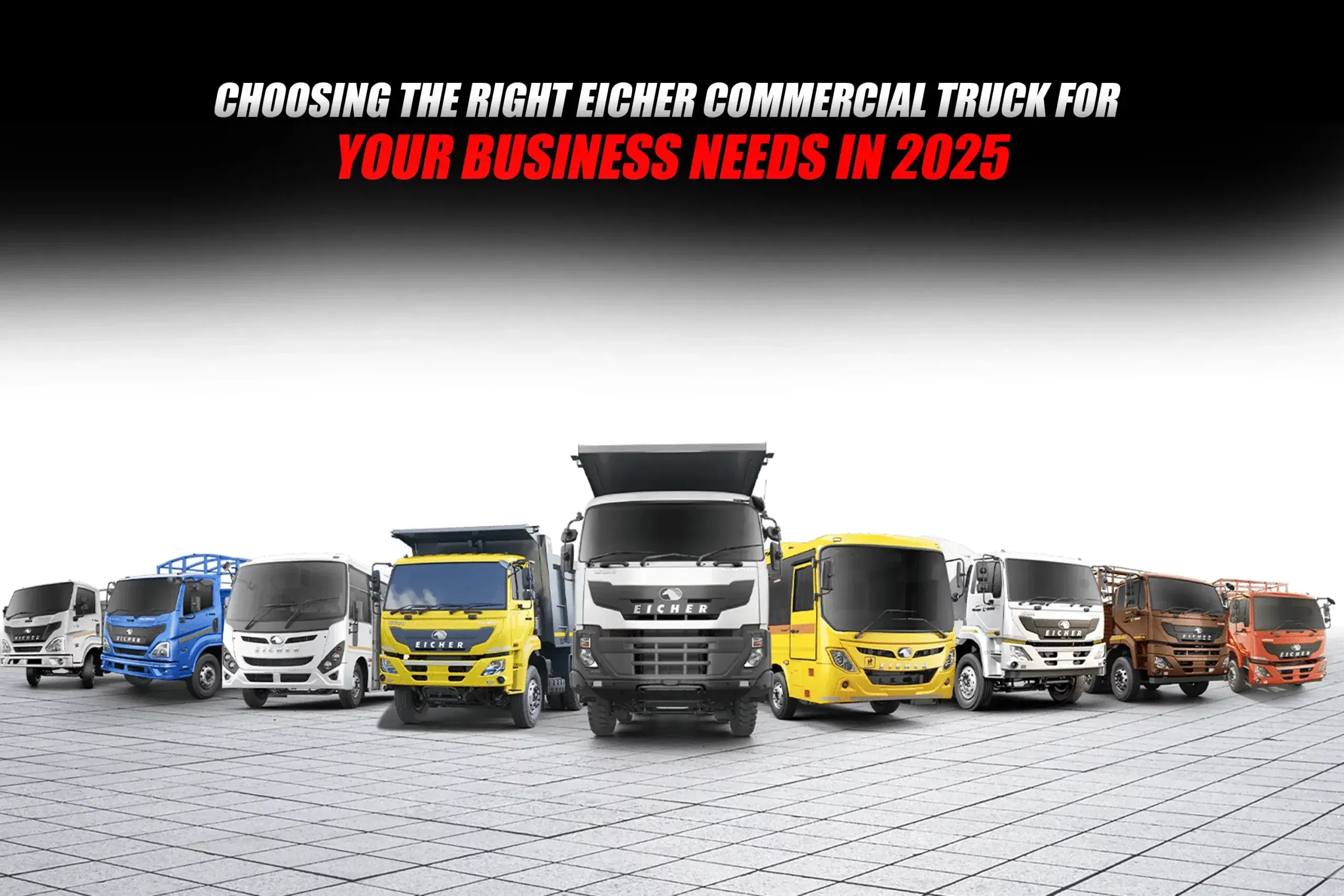Selection of a truck is not merely selecting a vehicle; it can determine the ease of running your business and the reliability of your deliveries. In India, commercial operators have seen Eicher trucks become all too familiar, due in large part to the fact that they have a variety of models that cater to light, medium, and heavy-duty requirements. But in 2025, with advancing technology and stricter emissions regulations, choosing the appropriate Eicher commercial truck is more than glancing through a brochure, it requires thoughtful consideration of what your company really needs.
Understanding Eicher Commercial Truck Categories
Eicher commercial trucks come under three broad classifications: LCVs, MCVs, and HCVs. Each has a specific use, and being aware of which classification suits your business can make a world of difference.
Light Commercial Vehicles (LCVs)
Trucks like the Pro 1049 and Pro 1110 are meant for city deliveries, last-mile logistics, and small goods transport. They have a payload capacity of 1.5 to 3.5 tons, making them easily navigate through urban roads. Though small in size, these trucks are built for reasonable fuel efficiency and operational performance. If your business includes regular city deliveries or several stops, an LCV is most likely the practical option.
Medium Commercial Vehicles (MCVs)
MCVs such as the Pro 2059 and Pro 3015 are most suitable for regional transport and mid-range load cargo. They accommodate loads between 5 and 10 tons and feature more robust suspension and improved safety features than LCVs. For operators who distribute goods outside city limits, MCVs offer the most appropriate balance of capacity and operable costs. They are multi-purpose enough for commercial logistics or construction material transport.
Heavy Commercial Vehicles (HCVs)
For long-haul travel and bulk transportation, HCV like Pro 6049 XP is used. These can carry 16 to 49 tons, with high-torque engines and multi-axle options ensuring stability over distance. Safety features such as sophisticated braking systems give extra confidence while dealing with heavy loads. HCVs are most suitable for industrial carriage, fuel supply, and bulk logistics. Naturally, it depends on efficient load management and timely maintenance.
Factors to Consider When Choosing a Truck
Selecting the proper truck involves more than appearance or horsepower. The following are the most important considerations commercial operators need to make:
- Payload Capacity: Combine the truck with your typical load to prevent overloading, which raises wear, maintenance, and expenses.
- Fuel Efficiency: Mileage will change with load, road condition, and driving habits. Realistic expectations enable sound operating costs.
- Cabin Comfort: Climate control, ergonomic seats, and ergonomic controls minimize driver fatigue on long trips and enhance productivity.
- Service Accessibility: Look for access to nearby service stations and spare parts to minimize downtime.
- Total Cost of Ownership: Look at fuel, insurance, maintenance, and operation costs instead of the sale price.
Notable Features in 2025 Models
The 2025 Eicher trucks come equipped with features that make the management of fleets easier for operators. GPS tracking and telematics enable improved route planning and tracking. High-end braking systems, such as ABS, enhance handling on slippery routes. Driver-assistance features in some trucks include cruise control and ergonomic controls, which minimize fatigue. BS6 engines comply with today's emission regulations, facilitating environmental compliance. These features are useful, but their value lies in how and where you operate the truck.
Conclusion
Selecting the appropriate Eicher commercial vehicle is not a question of finding the most imposing model. It's determining your business requirements, payload, routes, fuel economy, access for maintenance, and driver comfort. LCVs are best suited for urban areas, MCVs for regional transport, and HCVs for high-volume long-distance transport. Make decisions based on utilitarian considerations, and your fleet will not only perform efficiently but also help your business grow reliably up to 2025 and beyond.
For more articles and news, stay updated with 91trucks. Subscribe to our YouTube channel and follow us on Facebook, Instagram, and LinkedIn for the latest videos and updates from the automotive world!
Also Read:
New Hit and Run Law in India: Penalties and Legal Process Explained









